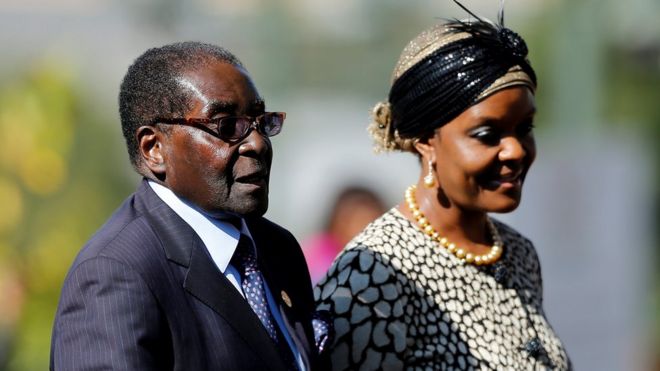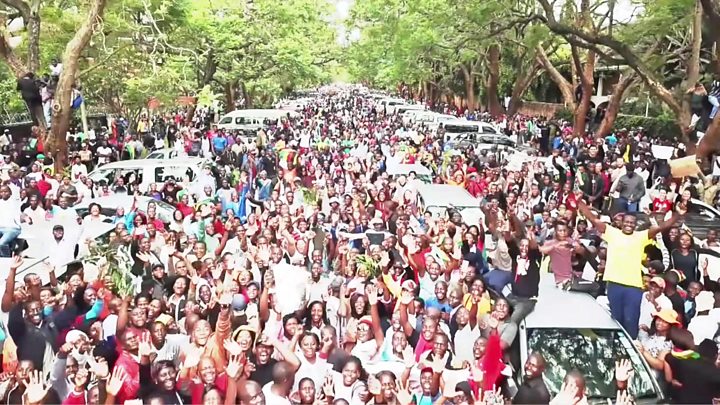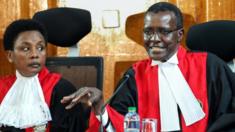 GETTY IMAGES
GETTY IMAGES
Zimbabwe's ruling Zanu-PF party is set to begin impeachment proceedings against President Robert Mugabe, on charges he "allowed his wife to usurp constitutional power."
The motion is now due to be presented to parliament on Tuesday.
Senior party member Paul Mangawana said the process could take as little as two days to complete, and President Mugabe could be removed by Wednesday.
A deadline set by Zanu-PF for his resignation passed on Monday.
Grace Mugabe was seen as a potential successor to the ageing president before the military intervention last week.
Zimbabwe's constitution allows for impeachment on grounds of "serious misconduct", "violation" of the constitution or "failure to obey, uphold or defend" it, or "incapacity".
Mr Mangawana said President Mugabe had also failed to implement the constitution, and his advanced age meant he was no longer fit for office.
"He is a stubborn man, he can hear the voices of the people, but is refusing to listen," he said.
Impeachment proceedings are now expected to be launched on Tuesday, with votes in both the National Assembly and the Senate.
Both chambers must then appoint a joint committee to investigate removing the president.
If the committee recommends impeachment, the president can then be removed if both houses back it with two-thirds majorities.
"We are expecting the motion to be moved tomorrow... and hopefully by Wednesday - because the charges are so clear - we expect that by Wednesday, we should be able to vote in parliament," Mr Mangawana said.
"The main charge is that he has allowed his wife to usurp constitutional power when she has no right to run government. But she is insulting civil servants, the vice president, at public rallies. They are denigrating the army - those are the charges," he said.
"He has refused to implement the constitution of Zimbabwe - particularly we had elections for the provincial councils, but up to now they have not been put into office."
"He is of advanced age, that he no longer has the physical capacity to run government," he added.

On Sunday, Mr Mugabe gave a televised address which surprised many Zimbabweans because it made no mention of the pressure from his party and the public to quit.
Surrounded by generals, he declared that the military had done nothing wrong by seizing power and placing him under house arrest.
He then vowed to preside over the Zanu-PF party congress, due in a few weeks.
The BBC's Africa Editor, Fergal Keane, said his understanding of the situation was that Mr Mugabe had agreed to resign, but then changed his mind.
Mr Mugabe is now opposed by his own party as well as the political opposition, military, and powerful War Veterans Association.
The public has also poured on to the streets in protest, calling for the end of Mr Mugabe's 37-year presidency.
Africa
Kenya court upholds Kenyatta poll win
- 20 November 2017
- Africa


No comments:
Post a Comment